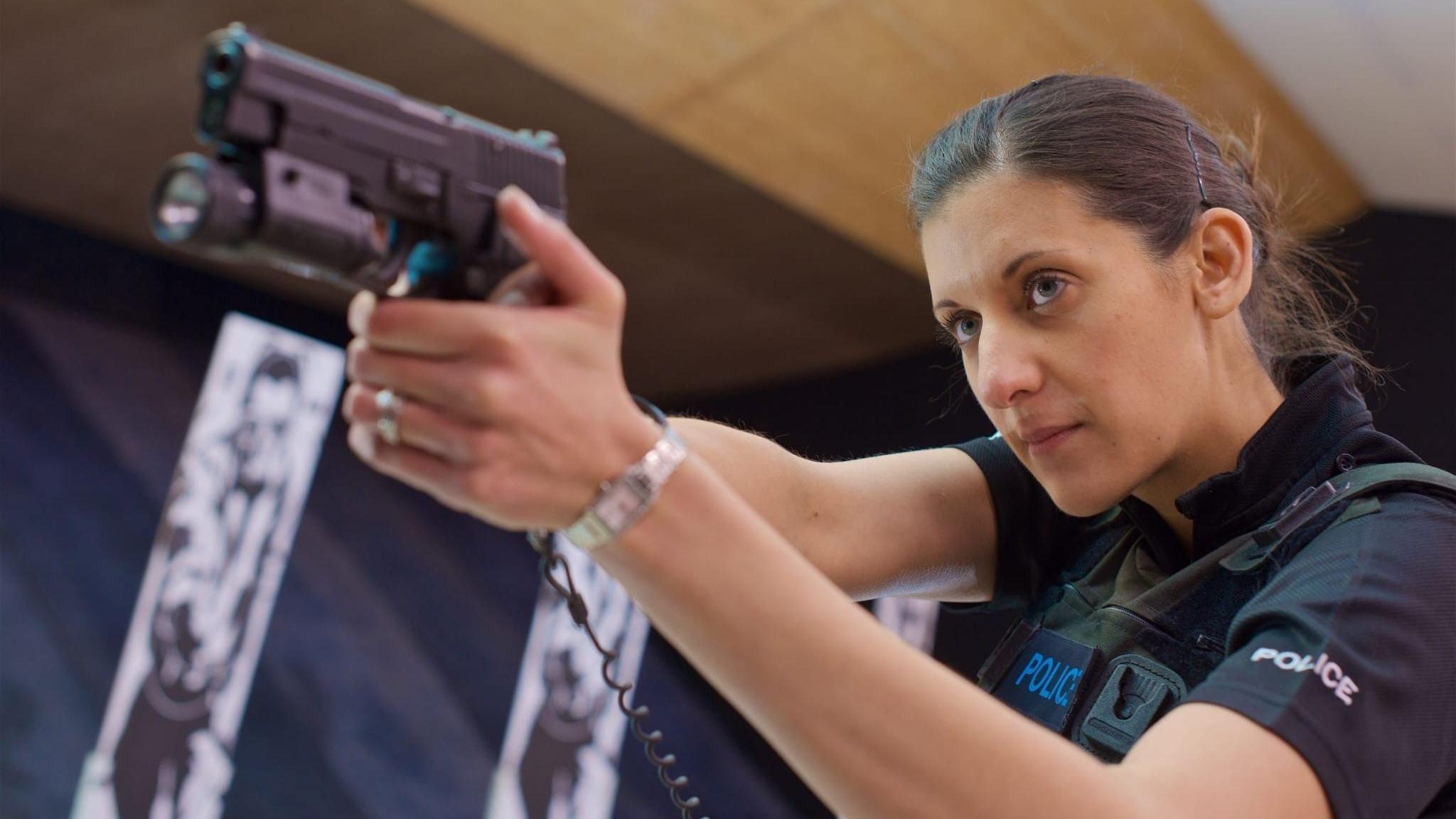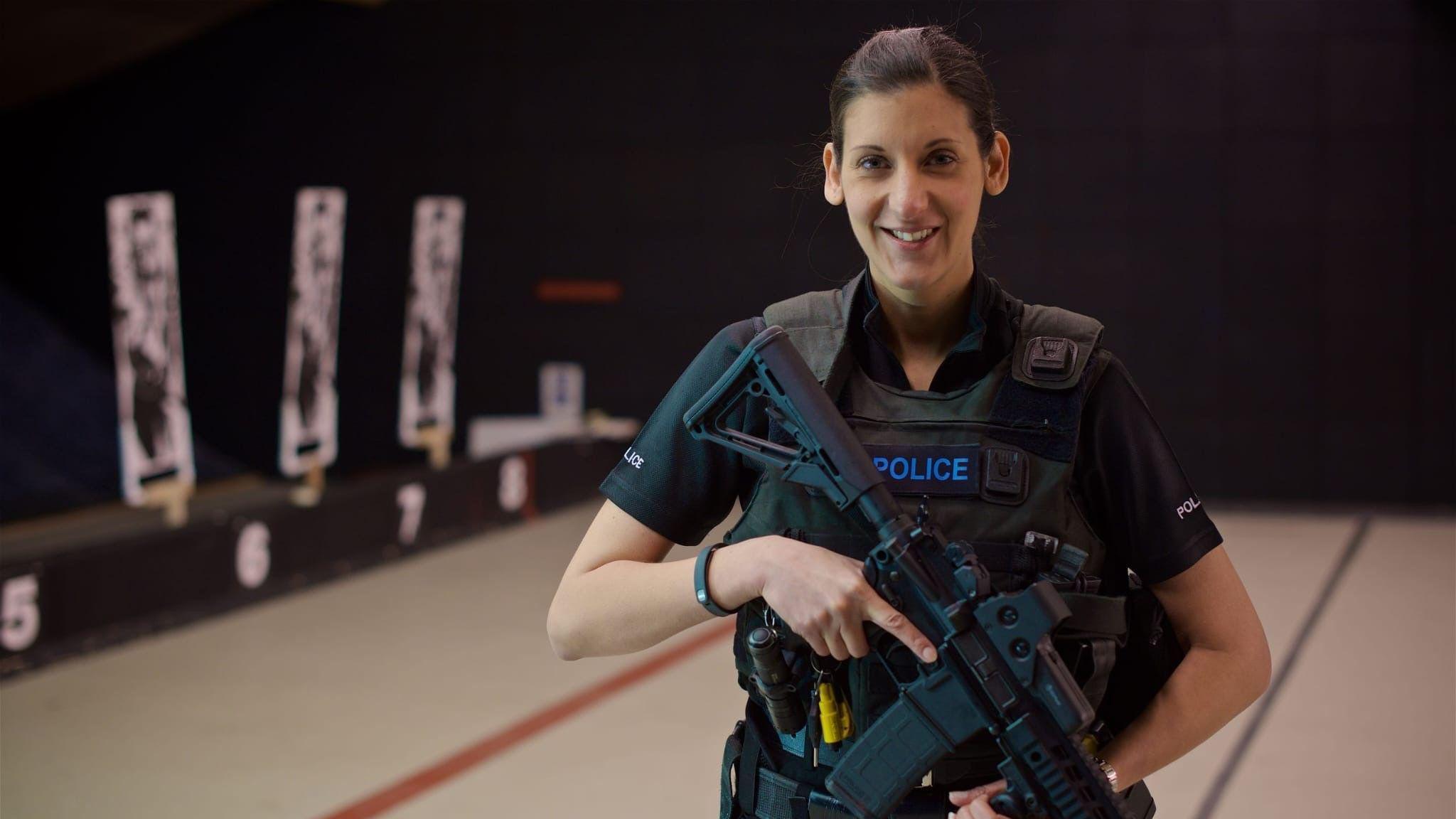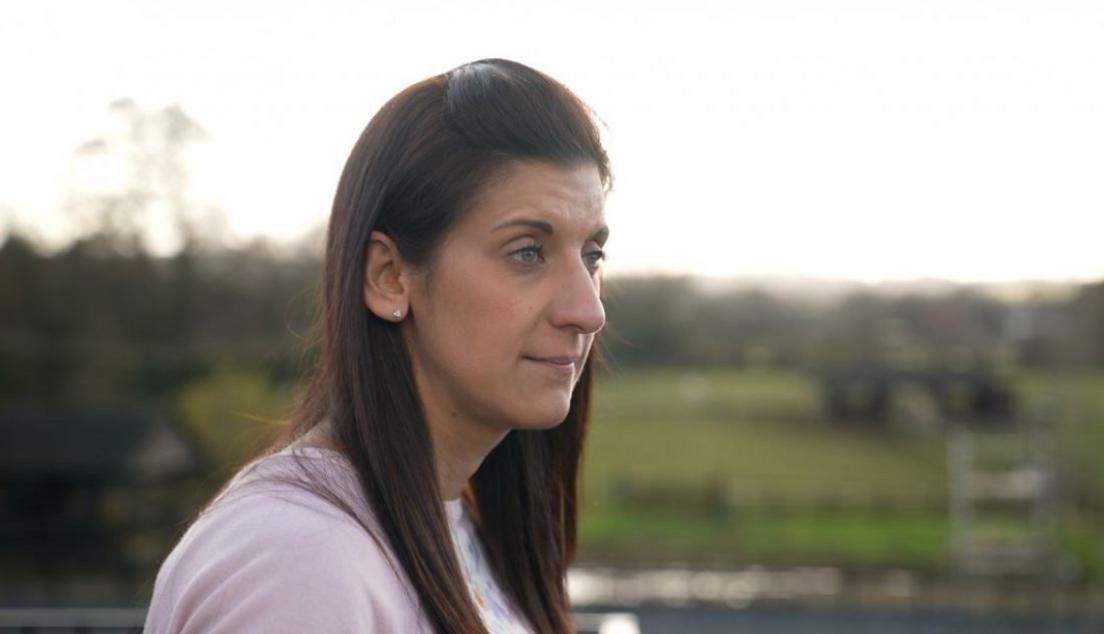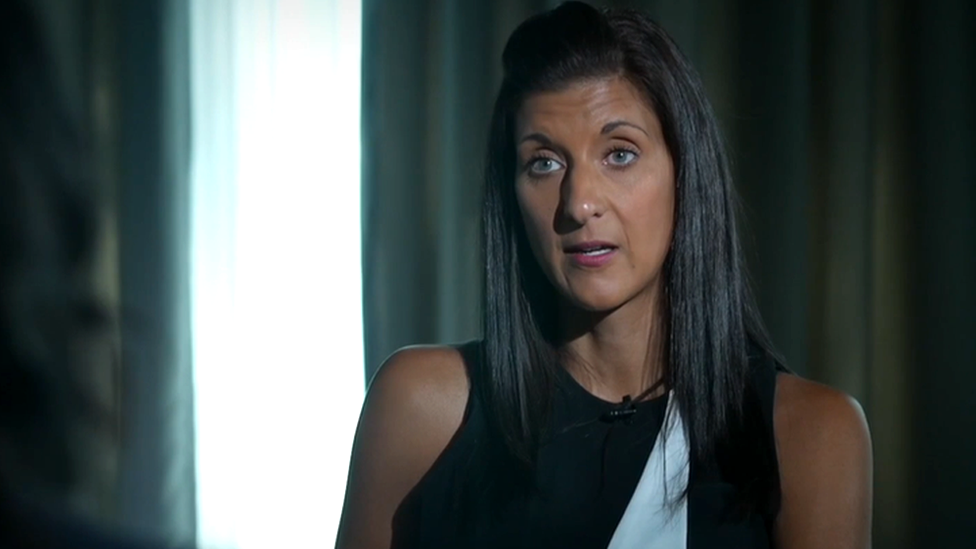'Sex predators within police operate in plain sight'
Former inspector Rebecca Kalam 'wouldn't trust some police around family'
- Published
A former police inspector has said that “sexual predators are operating in plain sight” within the service.
Rebecca Kalam served in West Midlands Police's firearms unit until she quit after winning a 2023 employment tribunal case in which she cited multiple instances of such behaviour.
She said she was speaking out again months later, as sexist, misogynist, racist and abusive practice was not being addressed, adding she feared the public could be at risk.
Deputy Chief Constable Scott Green from the West Midlands force said there was “no place in policing for misogynistic, discriminatory or disrespectful behaviour".
He added: "Much progress has been made to set and reinforce the highest standards of conduct and professionalism."
But Ms Kalam, 40, said she was concerned lessons had not been learned from her experience in the firearms unit, about which she brought her case against the force.
Behaviour, she said, had included a male officer exposing his genitals to her while at work, and in another incident, being stripped to her underwear in a mock training exercise.

Former firearms officer Rebecca Kalam brought tribunal proceedings against West Midlands Police
Ms Kalam explained her latest comments came in context of a report into Sarah Everard’s killer, former Met officer Wayne Couzens, that found police “repeatedly failed” to spot warning signs about his unsuitability for the role.
Lady Elish Angiolini, the lawyer leading the inquiry, has urged "all those in authority in every police force in the country to read this report and take immediate action".
Yet Ms Kalam said she could not find what specific practice had been adopted by West Midlands Police to address the events involving her, nor had she been able to meet with the force’s chief constable to discuss the matter despite requesting to do so.
The BBC, despite queries lodged with the force, has been unable to clarify specific changes put in place either.
However, the BBC has confirmed that none of the 19 firearms officers whose alleged behaviour was presented in evidence to the tribunal were suspended or sacked.
Ms Kalam said the public were at risk from predatory officers and she could not encourage young women to join the police “because of what I experienced”.
She told the BBC: “There are some amazing firearms officers who work tirelessly to protect the public. To the other ones, I wouldn’t trust them around any female member of my family.”
West Midlands Police is in special measures – meaning it is being subjected to extra government scrutiny – after watchdogs found it was not carrying out its investigations effectively or managing the risk to the public posed by sex offenders.

Ms Kalam was once used as the face of the firearms unit by the force
After the tribunal ruling in January this year, West Midlands Police said three serving firearms officers were suspended at that time, with 10 in the disciplinary process.
But the BBC can report none of that number were among the 19 referenced in the tribunal case. It is unclear what type of behaviour formed the focus of probes into the other group.
When asked by the BBC how many female employees were currently pursuing grievance cases across the force, involving alleged issues of misogyny, sexual discrimination, constructive dismissal, bullying or harassment, West Midlands Police said: “We have five females (three officers and two police staff) who have a current formal grievance case.”
Ms Kalam entered the force in 2008, joining the Firearms Operation Unit in 2012.
She successfully sued the force for harassment, sex discrimination and victimisation, winning a total of £820,720.
She said she had repeatedly warned the force about some officers prior to bringing the proceedings.
Behaviours she listed within the firearms unit, that she said were either raised directly with the force or which were referenced during tribunal proceedings, included:
- Being stripped down to her underwear by colleagues during a training exercise.
- A male officer pushing her down with his foot on the back of her neck while she was doing press-ups, before telling her having breasts "does not mean you cannot do a press-up".
- A male officer flashing his genitals to her while he was exercising on a treadmill
- Colleagues repeatedly watching and sharing pornographic images of women during work time
- Officers using social media groups to share sexist, pornographic, misogynistic and racist imagery and comments - termed workplace "banter" by the force, Ms Kalam said.

Rebecca Kalam said it had been important to stand up for what she believed in
West Midlands Police said it had "taken the grievance and disciplinary matters raised by Mrs Kalam seriously".
Deputy Chief Constable Scott Green said: "Over the past two years, under the leadership of Chief Superintendent Sarah Burton, officers and staff in the Firearms Unit have worked hard to improve culture, standards and the working environment.
"We continue to make progress to ensure that we are trusted by the public as we go about our duty to protect them.”
Ms Kalam told the BBC she had found it impossible to remain with the police service having won her case, adding her decision to quit was linked to the toll the tribunal process had taken on her health.
But she said she did not regret her actions, adding: “I'd do it again tomorrow because until people speak out, until they step up, until they’re upstanders rather than bystanders, things will never change.”
Sue Sim, a former chief constable at Northumbria Police, said there should be a "zero tolerance" approach to sexism within policing.
“Unless we have zero tolerance to sexism, abuse and misogynistic behaviour, we are not going to reassure all those women who we are supposed to be there to support, it’s just dreadful," she said.
She described the culture in policing as "very macho and masculine-led."
"There are of course brilliant police officers, both male and female who are trying desperately to do a good job for the communities that they really want to serve," she said.
“Unfortunately they are hampered in doing so by this overarching culture of machoism and it’s particularly prevalent unfortunately in small teams.
“Sexism is not an offence anywhere but if you’re the police service and you really want to eradicate this terrible behaviour, you need to set your standards high and you need to do it now.”
Follow BBC West Midlands on Facebook, external, X, external, and Instagram, external. Send your story ideas to: newsonline.westmidlands@bbc.co.uk
- Published9 January 2024

- Published24 November 2023
